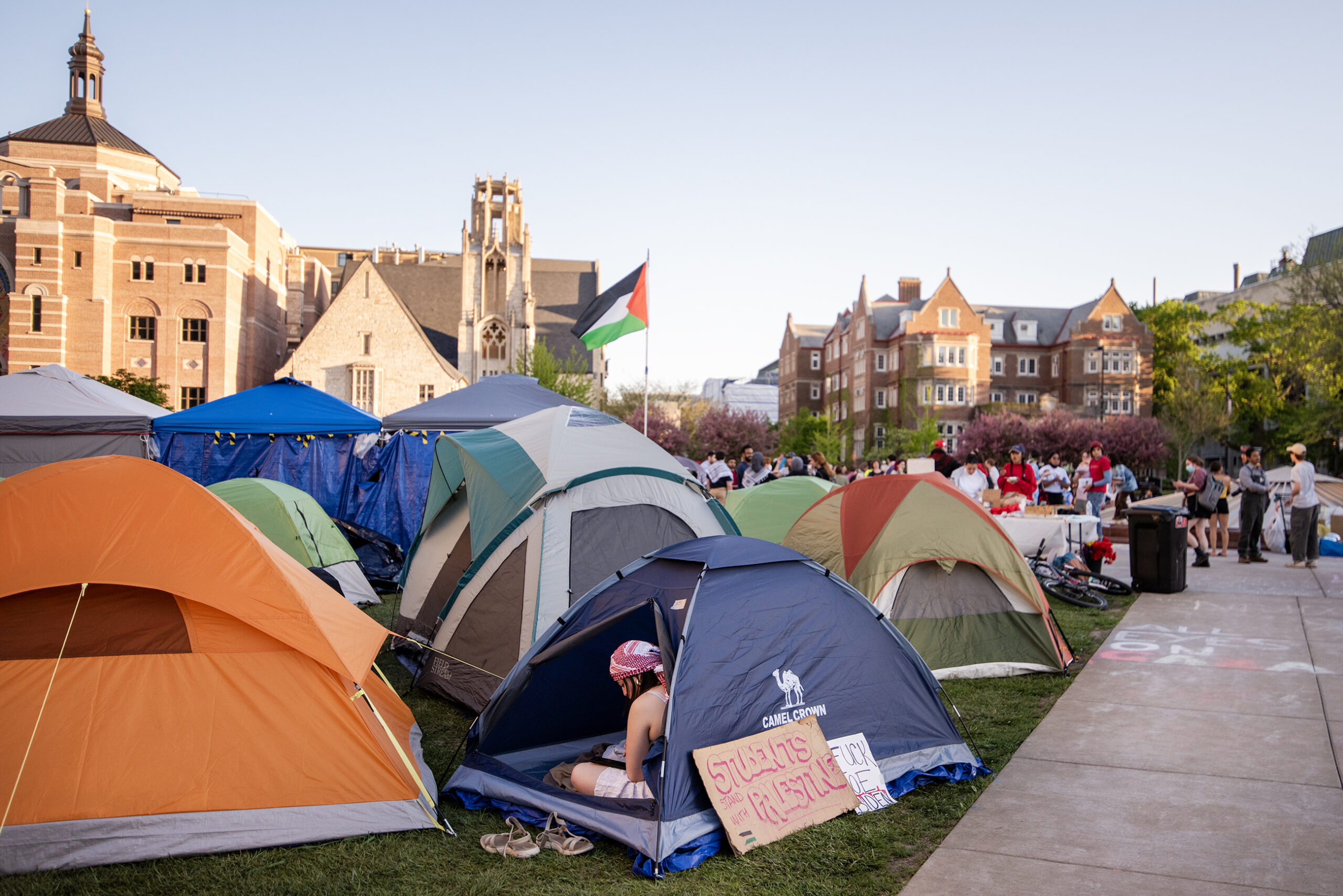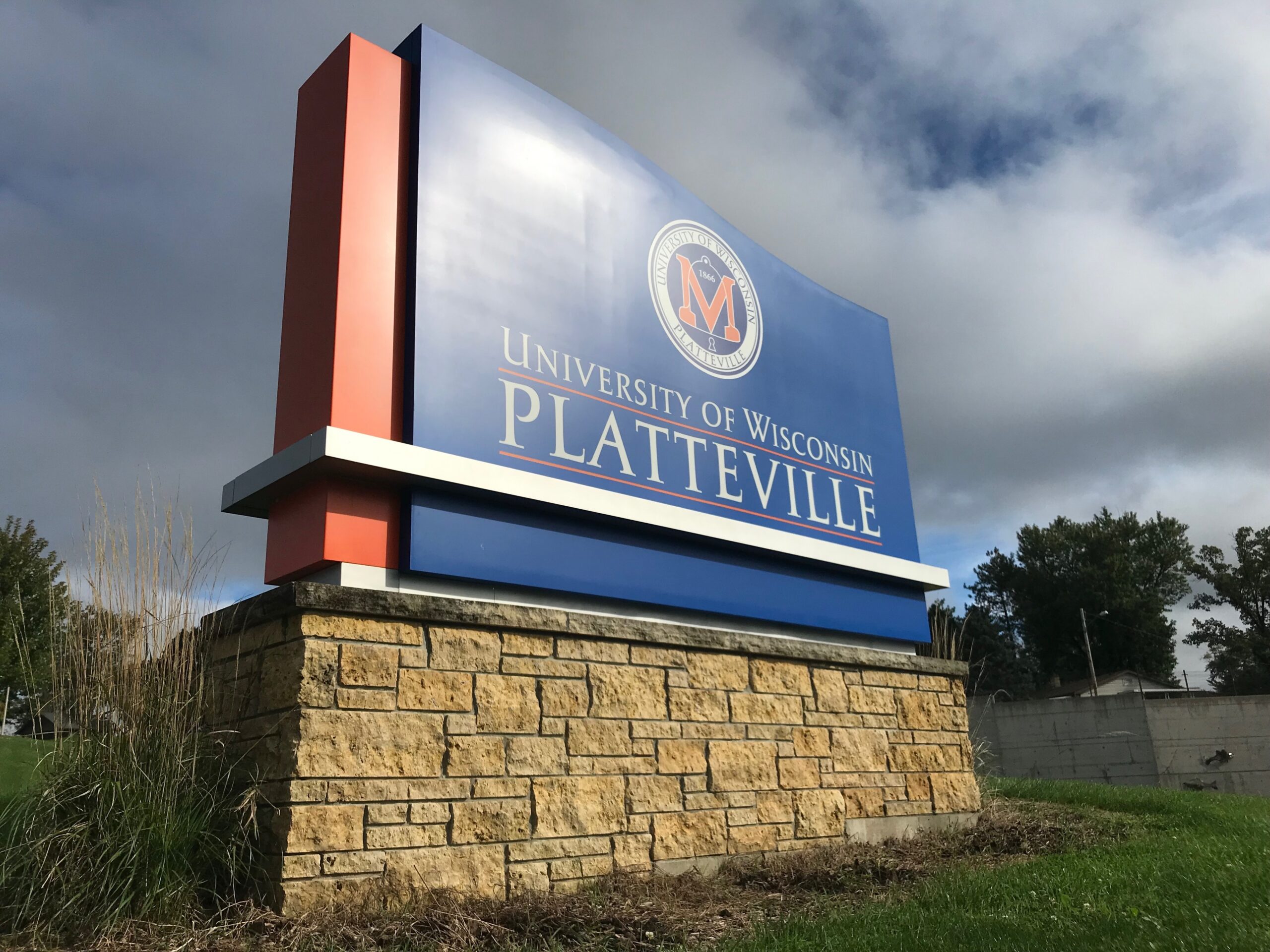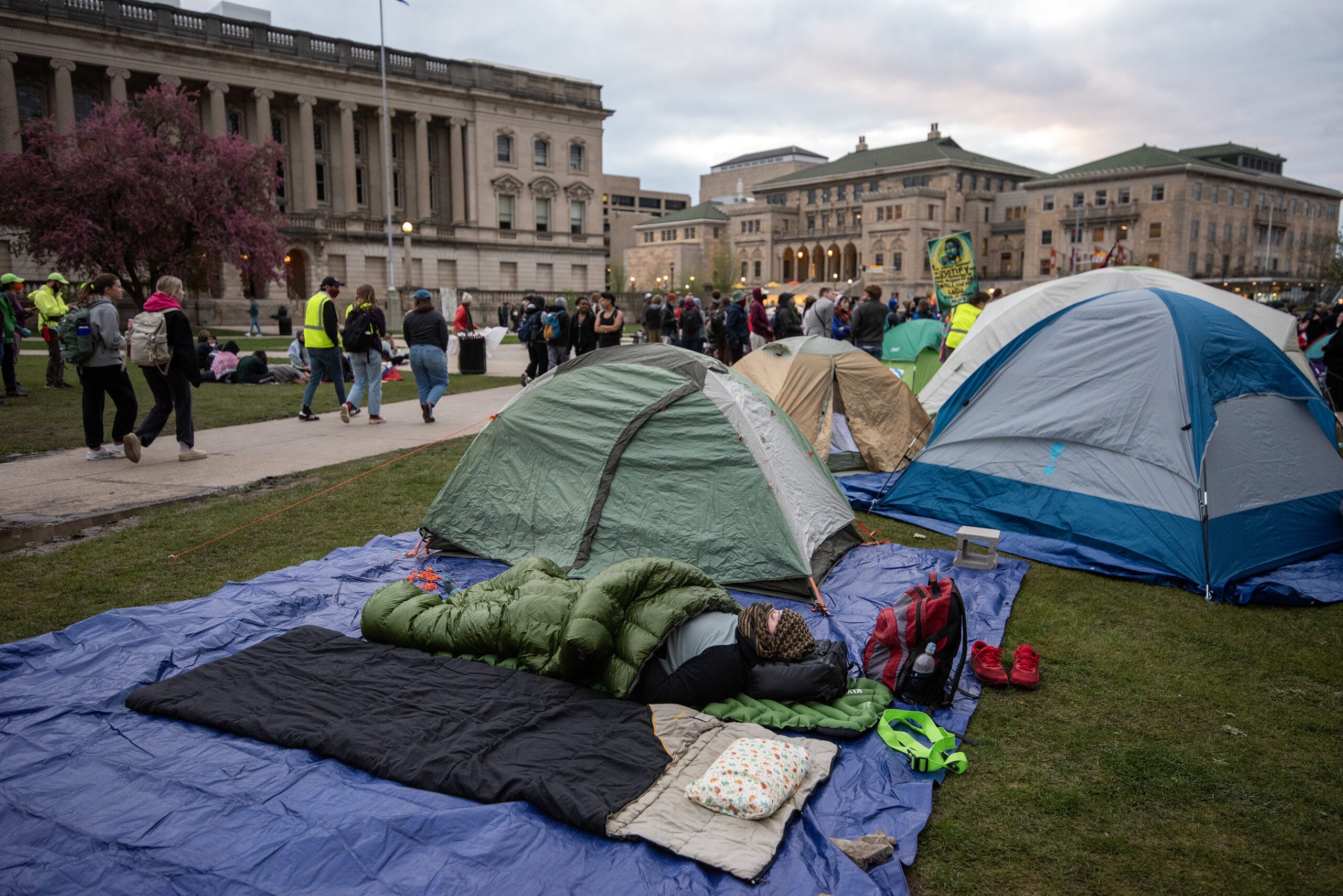Pro-Palestinian protesters at the University of Wisconsin-Madison say they plan to stay at the encampment until their demands are met.
Student protesters are hoping to meet with campus officials Friday to discuss those demands, including that UW-Madison and the UW system divest from all Israeli institutions and Israel-aligned companies.
Students are also asking the university to call for a ceasefire of the Israel-Hamas war, to stop the “large-scale acquisition of land” and for the complete removal of police officers on campus.
News with a little more humanity
WPR’s “Wisconsin Today” newsletter keeps you connected to the state you love without feeling overwhelmed. No paywall. No agenda. No corporate filter.
Friday is the last day of UW-Madison finals. Undergraduate commencement is scheduled for Saturday.
“We will stay out here until our demands are met,” Abbie Klein, a doctoral student at UW-Madison and a member of Students for Justice in Palestine-Madison, said Monday. “We are willing to de-escalate if they will work with us and we can get to some agreement by Friday.”
Over the weekend, campus officials and students met for a fourth time to attempt to resolve the dispute over the tent encampment on Library Mall.
“There was absolutely no discussion in today’s meeting about a ceasefire statement or cutting campus ties with Israeli institutions,” according to a statement from UW-Madison. “Campus leaders indicated it is not an option to remove (police) from campus and they recognize and support the important role UWPD plays in productively engaging with and protecting the safety of the entire 60,000-member campus community.”
Campus leaders have agreed to refrain from asking police to clear the illegal encampment if productive discussions continue, the statement says.
Coming to an agreement by Friday on student demands, however, seems unlikely.
University of Wisconsin Systems President Jay Rothman told WISN-12’s “Up Front” on Sunday the demands are “ludicrous.”
He commended campus police for the job they have done to keep students safe. Rothman also said the divesting issue is a “red herring.”
“The issues being protested are ones of foreign policy, not of university divestment,” Rothman said.
The UWM Popular University for Palestine Coalition has similar demands. A spokesman for the group said Monday, they will also remain on Milwaukee’s campus until their demands are met.
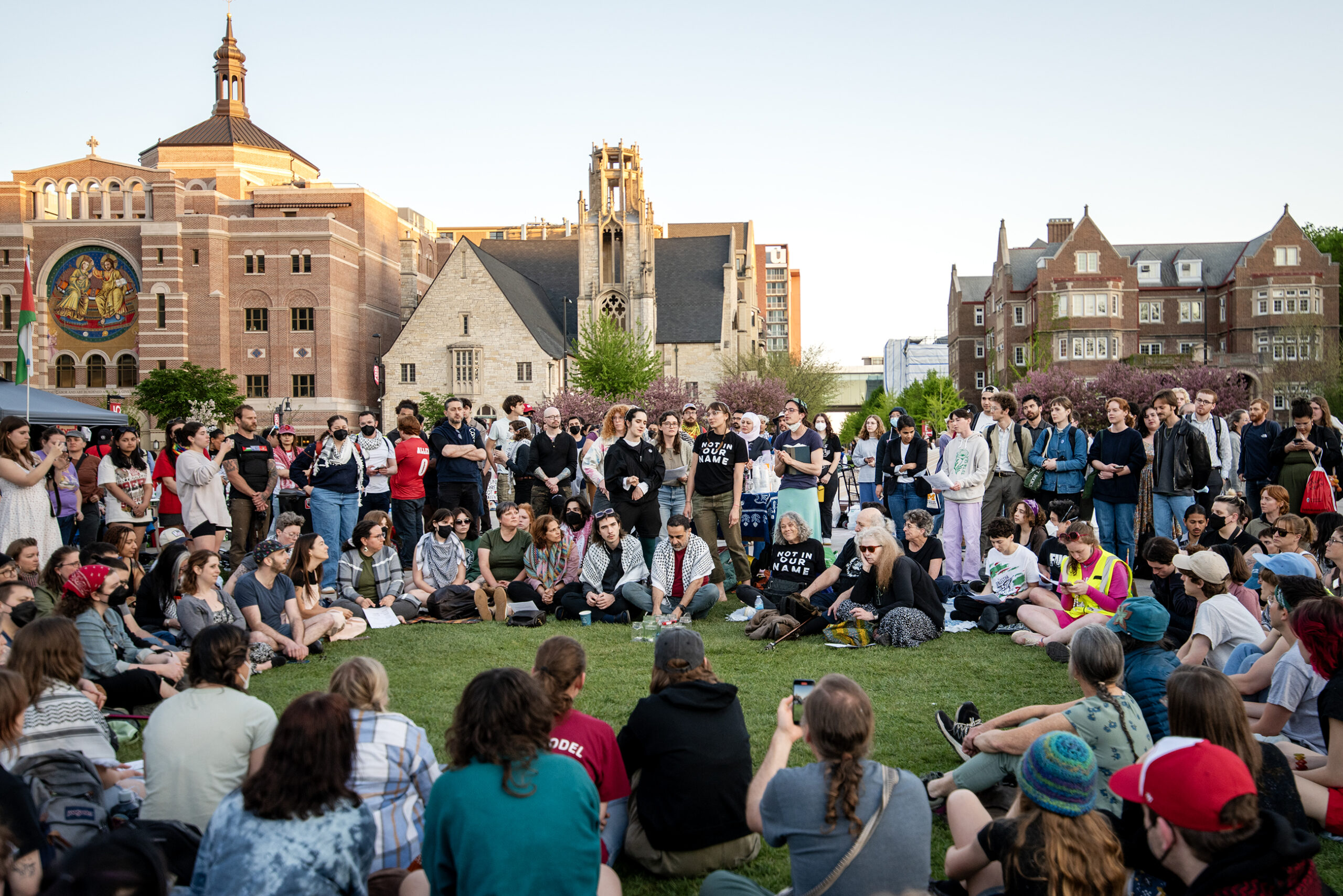
Divestment has become a common mantra
Student protesters across the country are calling on their universities to sell off endowment investments in Israel since the country’s invasion of Gaza.
So far, calls for divestments have been denied — although some universities are agreeing to open up the discussion with students.
Endowments, funded through donations, are typically managed by outside managers and invested in index, hedge or mutual funds. The money is generally used to support teaching, scholarships and research.
Many analysts agree divestments don’t usually punish the companies targeted, or change corporate behavior. But doing so can provide a moral and symbolic victory for protesters.
“Divestment itself doesn’t really influence the companies or the industries being targeted directly,” said Professor Todd Ely from the School of Public Affairs at the University of Colorado Denver. “It’s more the stigma created and drawing attention to the issue more broadly.”

UW Foundation: We only answer to our board
The latest tax filing for the University of Wisconsin Foundation shows the group had net assets of about $4.5 billion in 2022. Revenue that year was $1.3 billion and expenses were about $380 million.
When pro-Palestinian protests started at UW-Milwaukee, campus officials were quick to point out the school can’t decide how the UWM Foundation spends its endowment money.
“The UWM Foundation is a separate legal entity from UWM, and UWM cannot control the foundation’s investments,” says an April 29 statement. “Regardless, those investments are through mutual funds. The foundation cannot disinvest from individual companies within those funds.”
Tod Pritchard, spokesperson for the UW Foundation and Alumni Association, said the groups are independent nonprofits that only answer to their board of directors.
“WFAA’s investment operations are overseen by the Investment Committee of the WFAA Board of Directors, all of whom are UW donors and alumni,” Pritchard said. “We do not take directives on how to invest donor money from any parties outside of our board.”
Klein, the student protester in Madison, said while it may be broadly true the foundations operate separately, those policies can change.
“The chancellor has the power to influence them,” Klein said. “And they are falling back on passing the buck every time by relying on the system that they set up to neglect their own responsibility.”
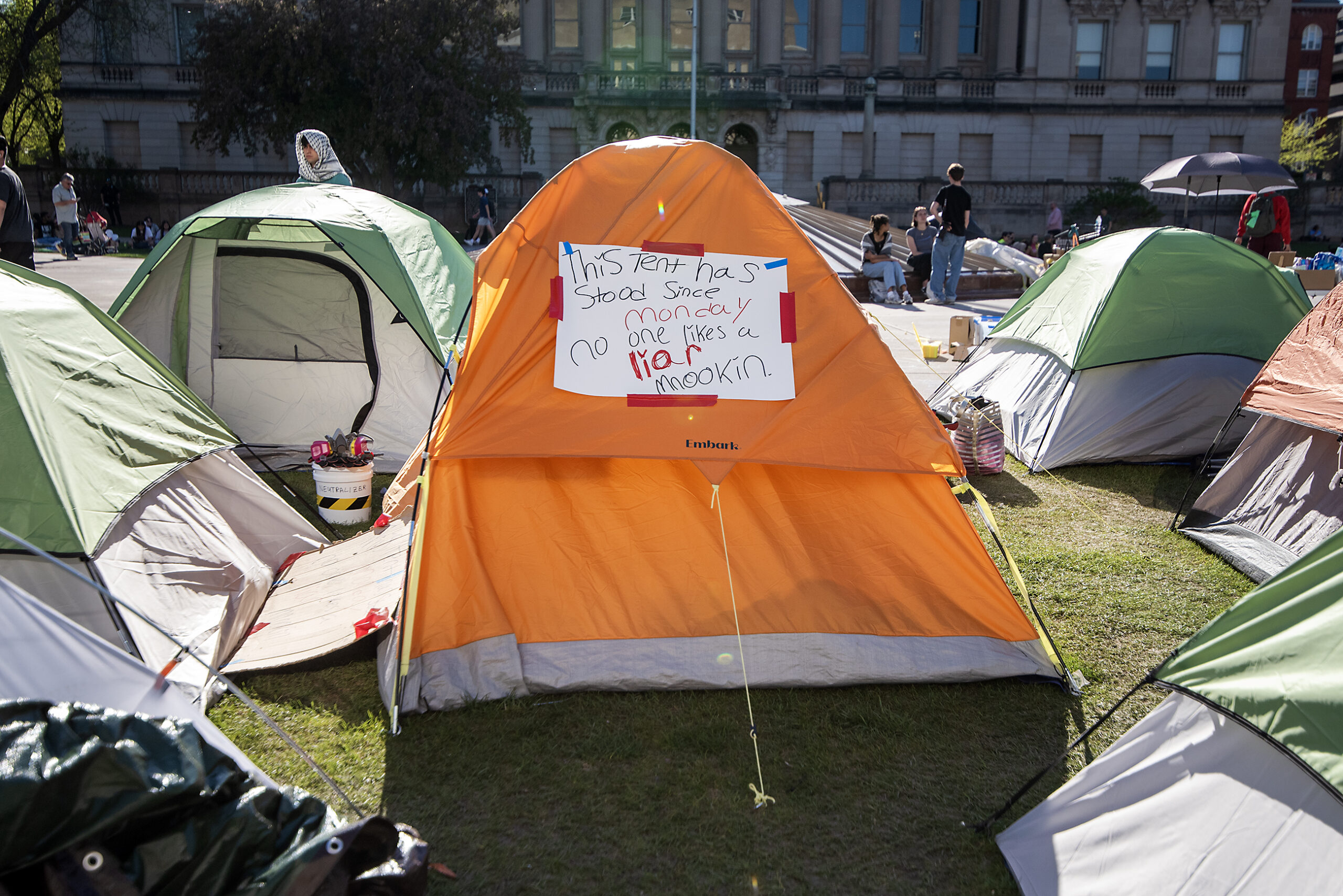
UW-Oshkosh joins protest, calls for divestment
The UW-Oshkosh Student Socials Association, UWO College Democrats and UWO Disability Advocates are planning a pro-Palestine protest for Tuesday.
The groups have the same demands as other Wisconsin student protesters, said organizer Tyler Cunningham.
“We also want to focus on Oshkosh Corporation as they have close ties with UWO and sponsor occasional events in the College of Business,” Cunningham said. “Oshkosh Corporation accepts military contracts and we call on UWO to cut all relations with Oshkosh Corp. due to their complicity in the ethnic cleansing conducted by Israel.”
Defense contractor Oshkosh Corp. announced in December it would begin producing dozens of armored vehicles for the Israeli Ministry of Defense.
Oshkosh Corp. did not immediately respond to requests for comment.
Editor’s note: NPR contributed to this report.
Wisconsin Public Radio, © Copyright 2026, Board of Regents of the University of Wisconsin System and Wisconsin Educational Communications Board.

